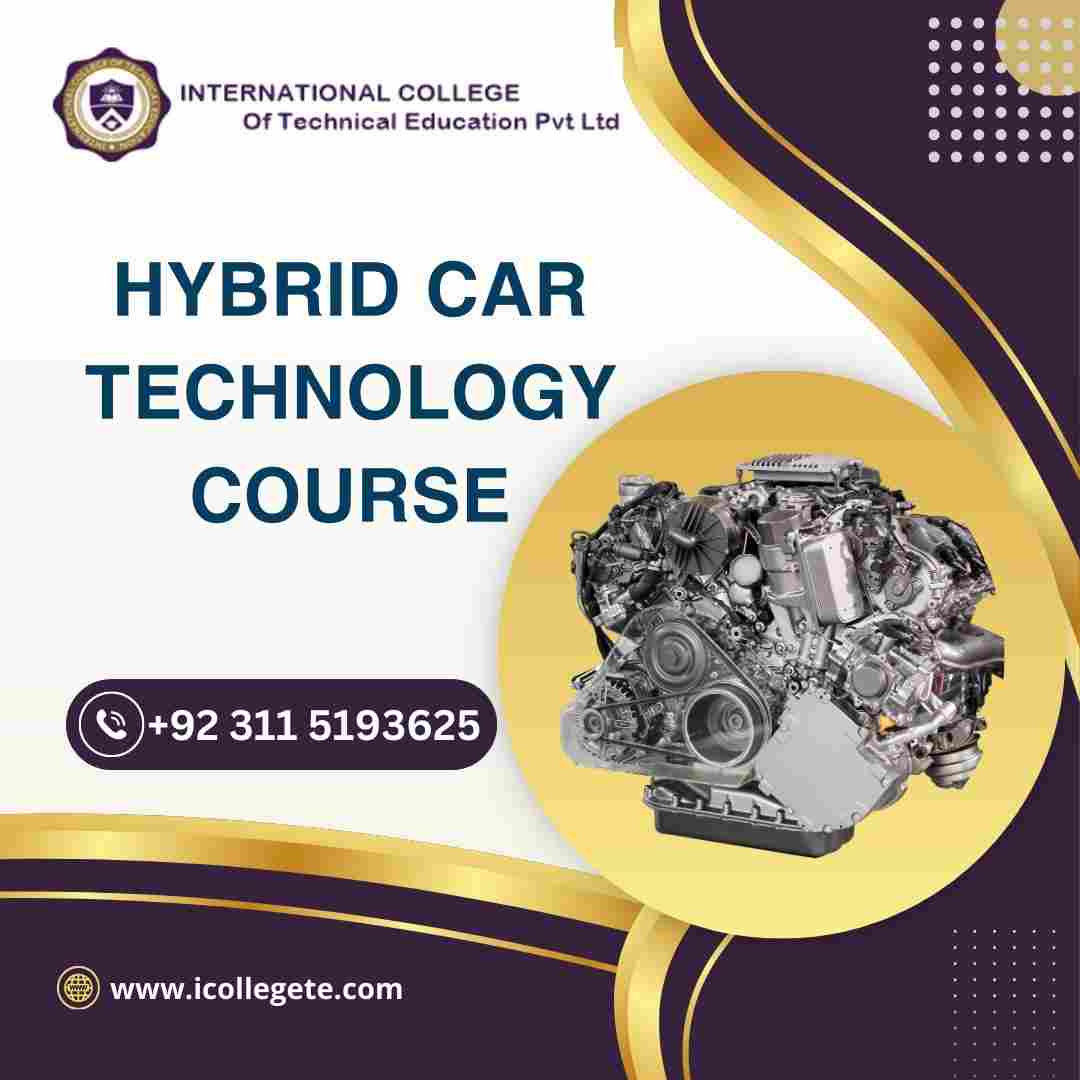
hybrid car Technology course in Bagh,Ajk
In a world where sustainability is becoming increasingly crucial, the automotive industry is steering towards greener alternatives. Hybrid car technology is at the forefront of this revolution, combining traditional internal combustion engines with electric power to create more fuel-efficient and environmentally friendly vehicles. If you’re passionate about automobiles and eager to be part of the green movement, a Hybrid Car Technology Course might be the perfect gateway to a promising career.
Course Benefits:
Sustainability and Environmental Impact:
Understand the environmental benefits of hybrid technology and contribute to the global effort to reduce carbon emissions.
Cutting-Edge Technology Exposure:
Dive into the latest advancements in hybrid vehicle systems, exploring the intricate technologies that make these cars efficient and eco-friendly.
Career Opportunities:
Tap into a rapidly growing job market as industries worldwide shift towards environmentally sustainable practices. Hybrid car technology professionals are in high demand.
Versatile Skill Set:
Develop a diverse skill set, combining traditional automotive knowledge with expertise in electric and hybrid systems, making you an asset to both traditional and future-oriented automotive companies.
Learning Outcomes:
Upon completion of the Hybrid Car Technology Course, students can expect to:
Understand Hybrid Vehicle Architecture:
Grasp the fundamental principles behind hybrid technology, from the integration of electric motors to battery management systems.
Diagnostic and Repair Skills:
Acquire the ability to diagnose and repair issues in hybrid vehicles, ensuring optimal performance and longevity.
Efficiency Optimization:
Learn techniques to maximize fuel efficiency and reduce emissions, contributing to a more sustainable transportation ecosystem.
Safety Protocols:
Master safety protocols associated with high-voltage systems, ensuring a secure working environment.
Study Units:
Introduction to Hybrid Technology:
History and evolution of hybrid vehicles.
Basic principles of hybrid systems.
Hybrid Powertrains:
Understanding electric motors and their integration with internal combustion engines.
Energy Storage Systems:
Battery technologies and management systems.
Diagnostic and Repair Techniques:
Identifying and resolving issues in hybrid vehicles.
Fuel Efficiency and Emission Reduction:
Strategies to optimize hybrid vehicle performance.
Who Is This Course For?
Automotive Enthusiasts:
Individuals with a passion for automobiles looking to align their interests with sustainable technologies.
Mechanical Engineers:
Professionals seeking to specialize in cutting-edge automotive technologies and contribute to a greener future.
Automotive Technicians:
Skilled technicians aiming to enhance their expertise in hybrid vehicle diagnostics and repairs.
Future Progression:
Completing the Hybrid Car Technology Course opens the door to various career paths, including:
Hybrid Vehicle Technician:
Diagnosing and repairing hybrid vehicles in automotive service centers.
Automotive Engineer:
Working on the design and development of hybrid and electric vehicle systems.
Fleet Management Specialist:
Managing hybrid vehicle fleets for businesses and organizations.
Environmental Consultant:
Advising companies on eco-friendly transportation solutions.
Embark on a journey into the future of automotive technology with the Hybrid Car Technology Course and position yourself at the forefront of the green revolution. Your expertise could drive the change towards a more sustainable and eco-conscious automotive industry.